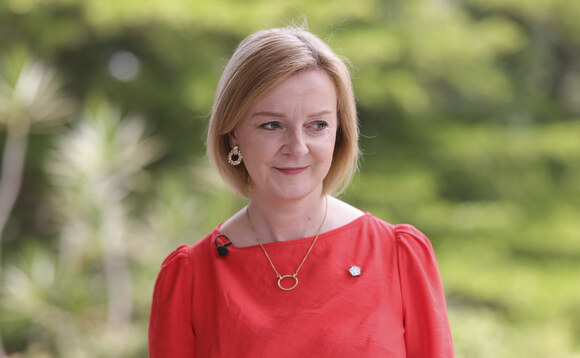New prime minister Liz Truss is set to face significant economic challenges in her premiership as she succeeds Boris Johnson and enters Downing Street, with commentators highlighting that the pound remains increasingly vulnerable in the face of runaway inflation and rising interest rates.
Preventing the pound from sliding should be high on the Prime Minister's agenda, according to head of UK equities at Lazard Asset Management Alan Custis, who said this would likely only be achieved through maintaining the Bank of England's independence on monetary policy.
Liz Truss stirred controversy during her campaign for leadership after she made comments proposing divergence away from "business-as-usual economic strategy," including a review into the powers held by the central bank.
She pivoted on the issue on Sunday (4 September), claiming she was a "great believer" in an autonomous central bank, which fundamentally includes its mandate to determine policy on inflation.
Custis said: "The government must also recognise that the UK is sliding down the ranks of the largest economies in the world, and to reverse this decline it must introduce policies that make the UK more attractive for inward investment, including by reversing the recent corporation tax increases and supporting the new freeports."
Liz Truss succeeds Boris Johnson as the UK's next PM
But while experts have said that Truss' plans to cancel the increase to the corporate tax from 19% to 25% would directly boost UK corporate earnings, many have said it would be unlikely to make a significant difference to long-term economic prospects for the country.
Rising energy prices and the spiralling cost of living is another key area of concern, and one that has lifted energy security up the political agenda.
Some commentators have called for immediate government subsidies to energy providers to ensure a maximum price cap to ease bills.
"In the long term, the government needs to make long-term commitments to building renewable capacity and increase private sector investment in infrastructure, via infrastructure bonds," said Custis.
Truss weighs plans to merge top financial regulators - reports
According to Ed Smith, co-CIO of Rathbone Investment Management, Truss' desire to loosen fiscal policy through a blanket cut to VAT would increase debt significantly and is "inflationary, all other things equal".
"Given the backdrop, it will almost certainly be met with tighter monetary policy. This is likely one of the many factors leading to the huge surge in UK interest rate expectations over the last month. But more fiscal support is essential, preferably highly targeted, and complemented by credible post-crisis growth policies," he said.
Charles Hepworth, investment director at GAM Investments, explained that while Truss's "much touted tax cuts" might bring some relief to consumers, they would likely fall short of re-powering the economy into "overnight growth."
UK economy picks up in August as GDP grows 0.4%
"The current cost of living crisis is historic - the worst fall in living standards in over a century," he said. "Equally, the public debt position is at levels once deemed unaffordable - so a spending splurge will not be viewed favourably by the markets."
"The Conservatives have been in power for 12 years now. In that time, the UK economy has shown little progress in productivity growth and slipped to the 6th largest economy in the world."
Frédérique Carrier, head of investment strategy at RBC Wealth Management, highlighted that given her reluctance to settle the county's debts, interest rates would likely increase further with Truss in office.
"She now seems to be in favour of supporting the economy other than through tax cuts. This ultimately means higher borrowing, and in turn it means the Bank of England could be forced to increase rates further than otherwise would have been the case," she said.





